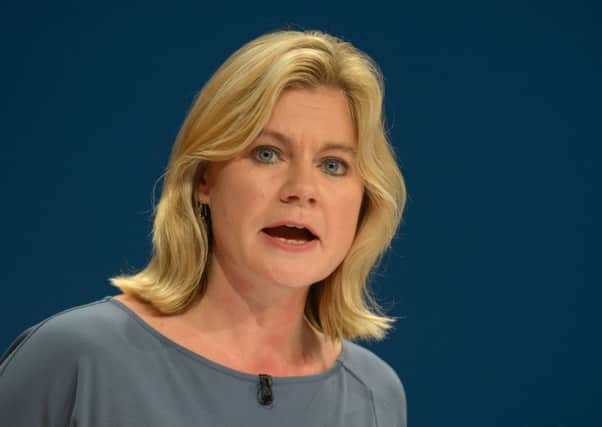YP Comment: Parental support is a vital lesson


It is also in their interests to do so – the best performing schools are invariably those where parental involvement and support provides added value to the curriculum.
Though they are a selfish minority, there are too many parents who appear content to absolve themselves of their responsibilities and simply sub-contract the upbringing of their children to teachers who are already harassed and exasperated by successive governments moving, and continuing to move, the goalposts each term.
Advertisement
Hide AdAdvertisement
Hide AdLike it or not, there should be a role for parents to play at every school – whether it be helping to keep the premises tidy, assisting with extra-curricular activities or, where appropriate, making a financial contribution towards a school trip. Despite the reservations of the NASUWT and other teaching unions meeting over this Easter weekend, this has always been the case – the key is making sure there’s sufficient support for those pupils whose families are enduring genuine financial hardship and alumni associations, PTAs and such like have a key role to play when it comes to raising funds.
That said, this does not preclude the Government from sanctioning indirect charges by stealth in order to mask shortcomnigs at the Department for Education headed by Rotherham-born Justine Greening. Quite the opposite. Though the Education Secretary is correct when she says that schools have record sums at their disposal, the plain fact of the matter is that pupil numbers have never been higher, and skills never been more important, as Britain prepares to leave the European Union.
Just as parents should be expected to do more to assist schools, they should – in return – expect Ms Greening to fight education’s corner even harder in Whitehall, including the Treasury. She won’t be able to do so, however, if she – and her Ministry – remain on the periphery of the Government’s Brexit strategy.
A bleak backdrop
EVEN though Easter is a traditional weekend for hope, world affairs provide a particularly bleak backdrop this year. Not content with launching a barrage of cruise missiles against Syria in response to Bashar al-Assad’s regime apparently breaking all international protocols with the use of chemical weapons against his own civilians, the USA has now used its aerial firepower to destroy a network of Islamic State-controlled caves in Afghanistan’s foothills.
Advertisement
Hide AdAdvertisement
Hide AdDeployment of this so-called mega-bomb – described as the largest non-nuclear bomb – ends, after less than three months, President Donald Trump’s ‘America first’ foreign policy. It signals a return to the liberal interventionism so favoured by President George W Bush, and Tony Blair on this side of the Atlantic, before Barack Obama’s caution after al-Qaida’s leader Osama bin Laden was hunted down and killed.
Without a political and diplomatic strategy, it’s difficult to see how such tactics will make the Middle East, and the rest of the world, more stable as a result. Indeed, it might only serve to embolden rogue regimes like North Korea which is widely reported to be planning further provocative nuclear tests of its own this weekend. Already President Trump has said: “North Korea is a problem. The problem will be taken care of.” As the stakes are raised to dangerous new levels, the question, as ever, is how – and at what cost?
Box office snooker
FORTY years after Sheffield’s Crucible Theatre first hosted the World Snooker Championships, this claustrophobic auditorium remains the perfect stage for late-night sporting drama. Who will ever forget the epic 1985 final when 18.5 million TV viewers stayed up until the early hours to watch Dennis Taylor beat Steve Davis on the final frame black?
Just as Wimbledon is the home of tennis and Lord’s the spiritual home of cricket, the Crucible’s intimacy remains synonymous with snooker. A showpiece event for with the total prize fund growing from a mere £17,000 in 1977 (the victor John Spencer pocketed £6,000) to £1.5m this year and first prize of £330,000, the one regret is that great characters of the past have been superseded by robotic-like potting machines lacking charisma, the very trait that made snooker box office. It’s surely no coincidence that the one exception – ‘Rocket’ Ronnie O’Sullivan – is the flawed genius who remains the game’s biggest draw.